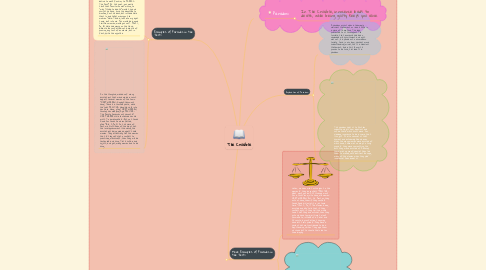The Crucible
저자: Emillie Burns

1. Examples of Paradox in the Text:
1.1. Right off the bat, in Act 1 of The Crucible, we see the twisted way that the characters view punishment. When Tituba, a slave, is accused of witchcraft her owner Parris uses harsh actions to try and get her to confess. “PARRIS, begins to beat her: You will confess yourself now, or I will take you out and whip you to death, Tituba! PUTNAM: This woman must be hanged! She is a witch and she must be taken and hanged! TITUBA, terrified, falls to her knees: No, no, don’t hang Tituba! Ok – OK – I, I, I tell him I don’t desire to work for him, sir. PARRIS: The Devil?” At this point, you would think that Parris who was willing to “whip Tituba to death” would try and punish the slave, since she admitted to working for the devil, but instead Hale steps in and takes mercy on the woman. “Hale: Tituba, look into my eyes. Come, look into me. You would be a good Christian woman, would you not?…”(Act 1, Pg. 14) Hale had mercy on the slave, because she confessed: not because of proving any sort of innocence, but in fact, quite the opposite.
1.2. In the storyline, we hear of many accusations that were made in court against several women of the town. “MARY WARREN: Goody Osburn—will hang! There is a shocked pause, while she sobs. PROCTOR: Hang! He calls into her face. Hang, y’say? MARY WARREN, through her weeping: Aye. PROCTOR: The Deputy Governor will permit it? MARY WARREN: He sentenced her. He must. To ameliorate it: But not Sarah Good. For Sarah Good confessed, y’see.”(Act 2, Pg.5 ) In this piece of text we first hear of the way that the local government is handling the accusations being made against these women. They essentially tell the women that if they refuse to confess to practicing witchcraft, then they will be sentenced and hung. This is unfair and unjust, and yet, many women are to be hung.
2. More Examples of Paradox in the Text:
2.1. Later, we hear what will happen to the women if they do confess. “PROCTOR: What work you do! It’s strange work for a Christian girl to hang old women! MARY WARREN: But, Mr. Proctor, they will not hang them if they confess. Sarah Good will only sit in jail some time...”(Act 2, Pg. 7) The women being accused are also told that if they confess guilt, if they tell the whole town that they are witches, then they will only have some jail time to look forward to, instead of a fatal end. Of course, by confessing, they may have lost their pride if they were a person that was considered to be a high-standing citizen. They give them no choice but to choose their lives or their dignity.
2.2. Although it may have taken a while to get it to happen, the governmental leaders eventually succeeded at bending John Proctor until he confessed to working for the Devil. The only problem: Danforth and the others want a public confession, but John refuses. “DANFORTH, pointing at the confession in Proctor’s hand: Is that document a lie? If it is a lie I will not accept it! What say you? I will not deal in lies, Mister! Proctor is motionless. You will give me your honest confession in my hand, or I cannot keep you from the rope. Proctor does not reply. Which way do you go, Mister? His breast heaving, his eyes staring, Proctor tears the paper and crumples it, and he is weeping in fury, but erect.”(Act 4, Pg. 10-11) John feels the effect of the same paradox that all of the others accused did before him. He is hung because of his pleaded, and yet, true, innocence.
3. Paradox:
3.1. In The Crucible, innocence leads to death, while being guilty keeps you alive.
4. Explanation of Paradox:
4.1. A paradox occurs when a seemingly ridiculous statement or idea is true in a piece of literature. The idea presented to us throughout The Crucible, that innocence had been rewarded with punishment and guilt was not, is a paradox to our modern society. Since, in our (now, perhaps more understanding) minds, this is a ridiculous statement, and in this story it is proven to be true; this idea is a paradox.
4.2. This paradox helps us to further understand just how ridiculous and unfair these witch hunts were. For pleading innocence to be a crime; that is unjust. It also reminds us that humans are extremely fear-driven. When the many women were accused of witch hood, there was no way to truly prove if they were committing the acts they were accused of. Although there was no proof, people’s fear led them to making rash decisions (hanging many of the women when they pled innocence). Fear drives us.


